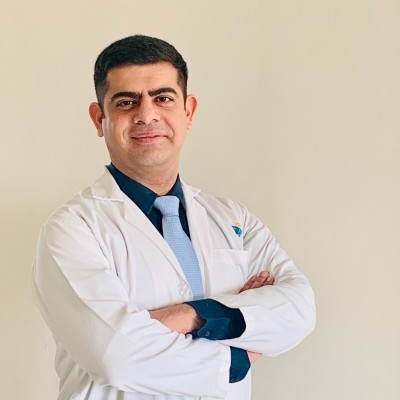What is Pediatric Surgery?
Pediatric Surgery is a specialized branch of medicine focusing on the surgical treatment of diseases, injuries, and abnormalities in infants, children, and adolescents. It encompasses a wide range of procedures, from correcting congenital defects to addressing injuries and infections. Pediatric surgeons are trained to work with the unique anatomical and physiological needs of young patients, ensuring safe and effective treatment.
When is Pediatric Surgery Necessary?
- Congenital Abnormalities:
Surgery is often required to correct birth defects such as cleft lip, palate, heart defects, or spina bifida.
- Trauma and Injuries:
Pediatric surgery addresses serious injuries caused by accidents, burns, or falls that require immediate intervention.
- Tumors:
Removal of benign or malignant growths, ensuring proper diagnosis and treatment to prevent complications.
- Infections:
Chronic infections such as abscesses or infections resistant to medication may require surgical drainage or removal.
- Digestive System Disorders:
Conditions like appendicitis, hernias, or intestinal obstructions often require surgical care.
Symptoms Indicating the Need for Pediatric Surgery
- Persistent abdominal pain
- Difficulty breathing or swallowing
- Swelling or lumps in the body
- Chronic infections that don’t respond to medications
- Delayed healing of wounds or injuries
- Bleeding or discharge from abnormal areas
- Frequent vomiting or diarrhea
- Visible birth defects requiring correction
- Unexplained weight loss or failure to thrive
- Developmental delays due to physical abnormalities
Why Choose India for Pediatric Surgery?
India has become a global hub for pediatric surgical care, offering advanced medical facilities, skilled surgeons, and compassionate care tailored to children’s needs.
Key Benefits of Pediatric Surgery in India:
- Experienced Pediatric Surgeons: Specialists trained in treating children with the utmost care and precision.
- State-of-the-Art Facilities: Hospitals equipped with cutting-edge technology and child-friendly environments.
- Affordable Care: High-quality surgical treatments at a fraction of the cost compared to Western countries.
- Comprehensive Support: Holistic care that includes post-surgical therapy, counseling, and parental guidance.
Common Pediatric Surgical Procedures
- Appendectomy:
Removal of the appendix in cases of appendicitis to prevent complications.
- Hernia Repair:
Correction of umbilical or inguinal hernias to prevent pain and discomfort.
- Cleft Lip and Palate Surgery:
Repairing congenital deformities to improve speech, feeding, and appearance.
- Congenital Heart Surgery:
Surgical intervention for heart defects like septal defects or valve issues.
- Tumor Removal:
Treatment of benign or malignant tumors, ensuring proper recovery.
- Intestinal Surgery:
Procedures for conditions like bowel obstructions or Hirschsprung’s disease.
- Thyroid or Parathyroid Surgery:
Treatment of glandular issues affecting hormone balance and growth.
- Trauma Surgery:
Emergency care for fractures, burns, or internal injuries.
- Urological Surgery:
Correction of abnormalities like hypospadias or undescended testicles.
- Minimally Invasive Surgery:
Advanced laparoscopic techniques for faster recovery and minimal scarring.
Pediatric Surgery Procedures
- Pre-Surgery Evaluation:
Detailed diagnosis, imaging, and discussions with parents to ensure clarity and comfort.
- Anesthesia Administration:
Administered by pediatric anesthesiologists to ensure safe and pain-free surgery.
- Surgical Techniques:
Procedures performed with precision using traditional or minimally invasive methods based on the condition.
- Post-Surgery Monitoring:
Children are observed in a recovery area to ensure stability and comfort after surgery.
- Parental Guidance:
Detailed instructions for post-operative care, medication, and follow-up visits.
Benefits of Pediatric Surgery
- Improved Quality of Life: Correction of physical abnormalities for better health and development.
- Early Intervention: Preventing complications through timely and effective surgical care.
- Reduced Risk of Chronic Issues: Proper treatment minimizes long-term health problems.
- Faster Recovery: Advanced surgical techniques ensure quicker recovery times.
- Tailored Care: Specialized approach catering to the physical and emotional needs of children.
Post-Surgery Care and Recovery
- Adequate Rest: Ensure the child gets proper rest to facilitate healing.
- Pain Management: Medications prescribed to manage discomfort during recovery.
- Balanced Diet: Soft, nutritious foods to promote recovery and strength.
- Hygiene: Keep the surgical site clean to prevent infections.
- Regular Check-Ups: Follow-up visits to monitor recovery progress.
Cost of Pediatric Surgery in India
The cost of pediatric surgery in India is highly affordable compared to many Western countries, with prices typically ranging from INR 50,000 to INR 3,00,000 (approximately USD 600 to USD 3,500). The exact cost depends on factors such as the type of surgery, hospital, and location.
Key Factors Influencing the Cost:
- Type of Surgery:
- Routine procedures like hernia repair are less expensive, while complex surgeries like heart surgeries or spinal surgery may cost more.
- Hospital and Location:
- Hospitals in metro cities like Delhi, Mumbai, and Bangalore may charge more, while smaller cities offer more economical options.
- Surgeon's Expertise:
- Highly experienced surgeons or those from renowned hospitals may increase the overall cost.
Despite the range in pricing, India remains one of the most cost-effective destinations for pediatric surgeries, without compromising on quality.
Frequently Asked Questions (FAQs)
- What is the ideal age for pediatric surgery?
Pediatric surgery can be performed at any age, depending on the condition and medical need.
- Is pediatric surgery safe?
Yes, with experienced surgeons and advanced technology, pediatric surgery is safe and effective.
- How long does recovery take after pediatric surgery?
Recovery time varies by procedure but generally ranges from a few days to a few weeks.
- What are the risks of pediatric surgery?
Risks include infection, bleeding, or reactions to anesthesia, but these are rare and manageable.
- How do I prepare my child for surgery?
Keep your child informed in an age-appropriate manner and follow pre-surgical guidelines provided by the doctor.
- Can parents stay with the child during the hospital stay?
Most hospitals allow parents to stay with their child to provide comfort and support.
- Is minimally invasive surgery an option for children?
Yes, many pediatric surgeries can be performed using minimally invasive techniques.
- What follow-up care is needed after surgery?
Regular check-ups and adherence to post-surgery care instructions are essential for recovery.
- Will surgery impact my child’s growth and development?
Pediatric surgeries are designed to improve growth and development by addressing underlying issues.
- Are pediatric surgeons specially trained?
Yes, pediatric surgeons undergo specialized training to handle the unique needs of children.




